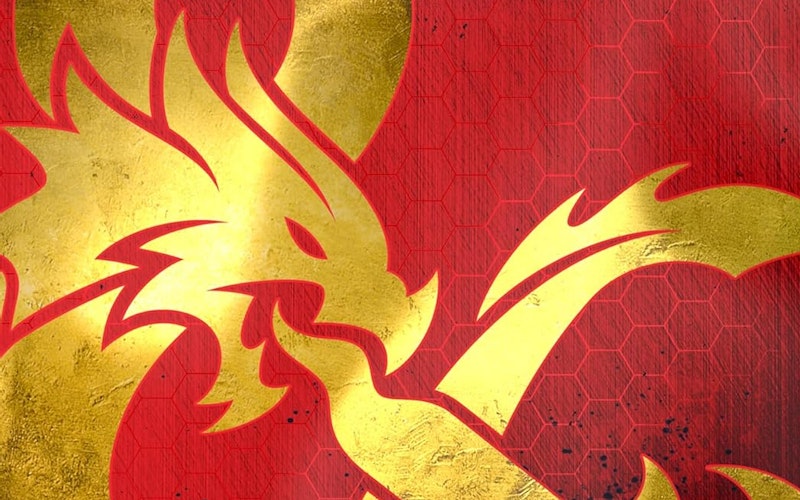
Culture At Large
Dungeons & Dragons at 50
Can you believe that Dungeons & Dragons has been around for 50 years?
The world’s first published role-playing game hit the market in 1974 with a three-booklet box set in a print run of just 1,000 copies. The game flew off hobby-store shelves, purchased by war-game enthusiasts who quickly realized that D&D was something entirely different. They took to their fanzines to spread the word and one of the great fads in pop-culture history took off.
Throughout 2024, fans have been celebrating the game’s 50th anniversary by commemorating the game’s designers and early contributors at sold-out gaming conventions like Gen Con and Gary Con. D&D’s current trademark holder, Wizards of the Coast, published a stunning tome titled Dungeons & Dragons — The Making of Original D&D: 1970 - 1977, which features the creators’ rough drafts and a full printing of what fans now call OD&D with commentary. The publisher has also released a major refresh to their wildly popular D&D 5th edition line with a new Player’s Handbook, Dungeon Master’s Guide, and Monster Manual.
I discovered D&D at age 12, just when the game was becoming a worldwide phenomenon. Questions about spirituality in the game roiled in the public discourse as part of the “satanic panic” of the era. As they say, “Any publicity is good publicity,” so while these controversies eventually faded, they induced skyrocketing sales on D&D merchandise. As a Christian kid, I argued with my parents about the merits of the game, making the case that D&D was make-believe—like J.R.R. Tolkien’s Middle-earth and C.S. Lewis’ Narnia—and that the players were in effect making a story together. They didn’t like how much attention I gave to the game and the friends I played it with. And images of devils and demons and occasional instances of nudity in the books certainly undermined my arguments.
Ultimately it came down to this question: What kind of fruit was D&D producing in my life? D&D inspired massive creativity in me; as a teenager, I was never bored. The game taught me about storytelling, improved my critical and creative thinking, and kept my friends and I out of trouble. We were having too much fun exploring deep dungeons and slaying dragons to experiment with drinking, drugs, and sex.
D&D has become a lifestyle brand. It’s even cool to play D&D, unlike in the 1980s. The game remains a deep well for discussions about God, creation, good and evil, redemption, worship in play, and worthy pastimes. Over the years, Think Christian writers have contributed a number of articles on these topics. We invite you to read them below:
Dungeons & Dragons & Doxology: A Theology of Role-Playing Games, by Jaclyn S. Parrish
In the way they depend on communal creativity, RPGs can be acts of sub-creation and expressions of praise.
Why the Dungeons & Dragons OGL Decision is a Victory for Sub-Creation, by Christopher Hunt
Keeping the role-playing game open to all carries both creative and spiritual implications. In popular culture, few entities lend themselves to imaginative world-making, or sub-creating, as well as Dungeons & Dragons.
Baldur’s Gate 3 and Christian Companionship, by Ryan Guerra
The Dungeons & Dragons video game places you within a band of flawed companions. Not unlike Jesus’ own gathering of imperfect followers. Even Jesus surrounded himself with fallen people.
Orcs and Evil in Dungeons & Dragons, by Christopher Hunt
Updates to the role-playing game’s “races” carry important theological implications. Traditionally, orcs were much like the demons of the Bible, fallen angels with no hope of salvation. How does that change when a player can portray an orc in D&D?
New Life for Dark Dungeons, by Andy Rau
“Dark Dungeons,” an infamous 1984 evangelistic tract warning Christians about Dungeons & Dragons, gets the movie treatment. What combination of personal, cultural, and theological trends might cause us to jettison common sense when confronted by an unfamiliar piece of pop culture?
Topics: Culture At Large